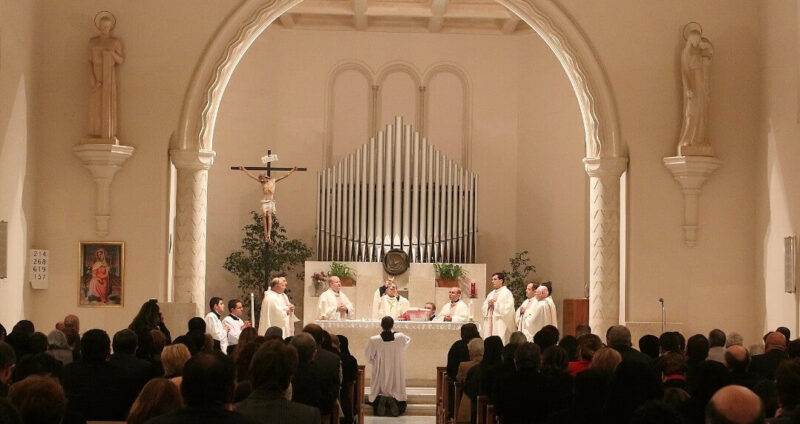The course offers an introduction to the history, theory and practice of Roman Catholic public worship. It does so with particular reference to:
- Core principles of liturgical-theological study and the meaningful application of such principles;
- Sacramental praxis of the Eucharist and sacraments of Initiation;
- Sacramental praxis as it pertains to the liturgical sacraments of Healing and Service;
- Liturgical praxis in the area of Bereavement and ancillary orders;
- Liturgical structuring of space and time, with particular reference to historico-cultural developments, and the composition of contemporary liturgical observances and spaces;
- Liturgical theology and practices of Advent, Christmas, Lent and Easter;
- Marian devotions and popular devotions in the liturgical inheritance of the faithful.
The course is pastorally centred, to better serve learners who are seeking instruction in the theory, practice, and historical development of Christian liturgical heritage. The Western tradition and its expression in the Roman Catholic Liturgy will be explored with special emphasis. The course provides essential learning for individuals who are/ will be involved in Parish Liturgical Commissions and the Animation of the Liturgy, alongside lay persons with an interest in liturgical studies and popular devotions.
The course will support the ongoing formation of current and prospective Liturgical Leaders and Animators, Sacristans, Special Eucharistic Ministers, Musical Directors, and other liturgical collaborators within their own Catholic communities.
The course is also relevant to professionals (e.g. wedding directors, funeral directors, guides of religious tourism etc.) whose activities bring them in direct contact with liturgical places and observances.
Dates for this course are to be announced.
AFF Level: Level 5
Every application will be considered on its individual merits. The Pastoral Formation Institute accepts a wide range of qualifications, and we always try to judge applications on the basis of academic potential. We do consider a very wide range of academic, vocational, and professional qualifications, as well as work and other appropriate experiences and skills.



